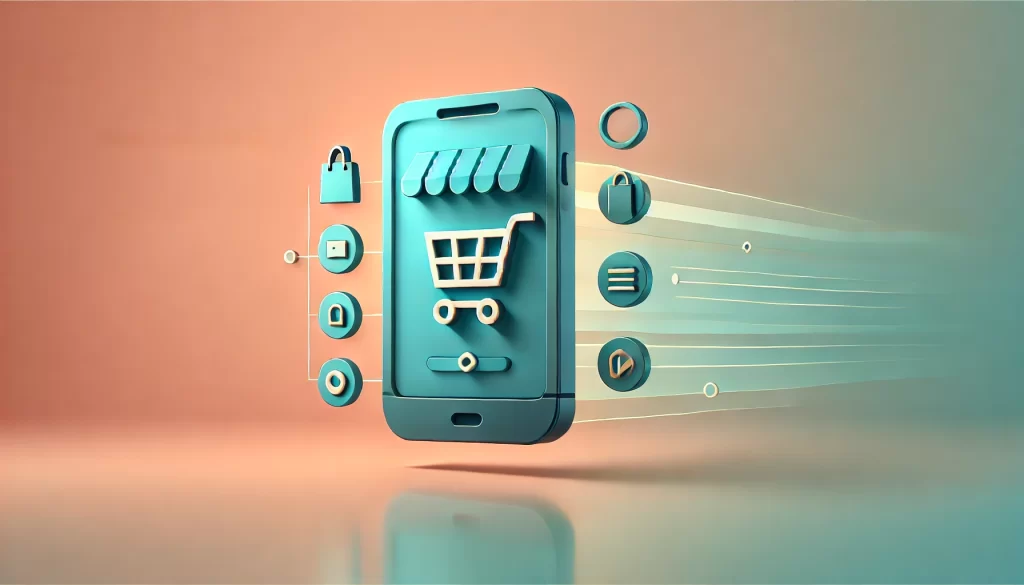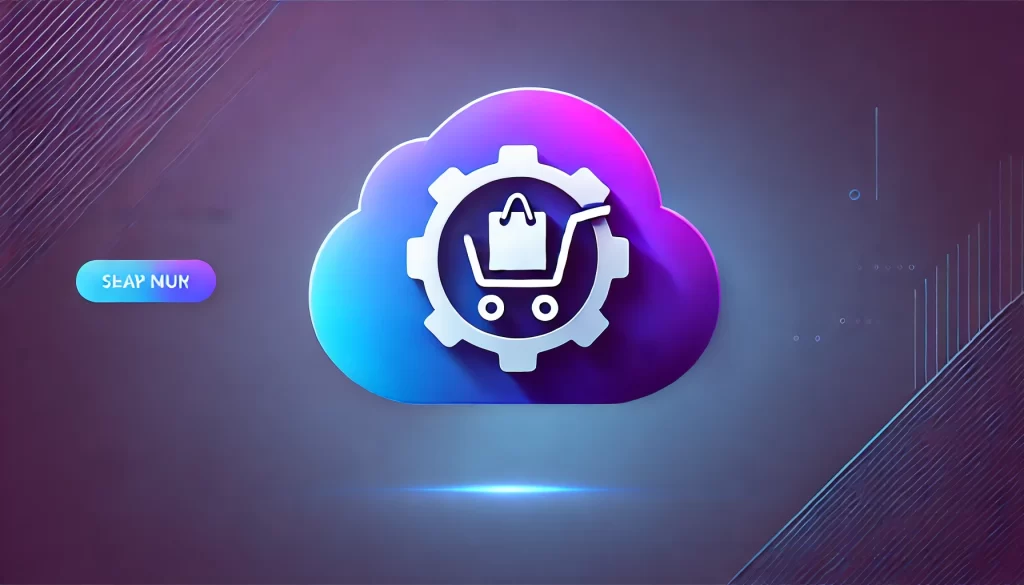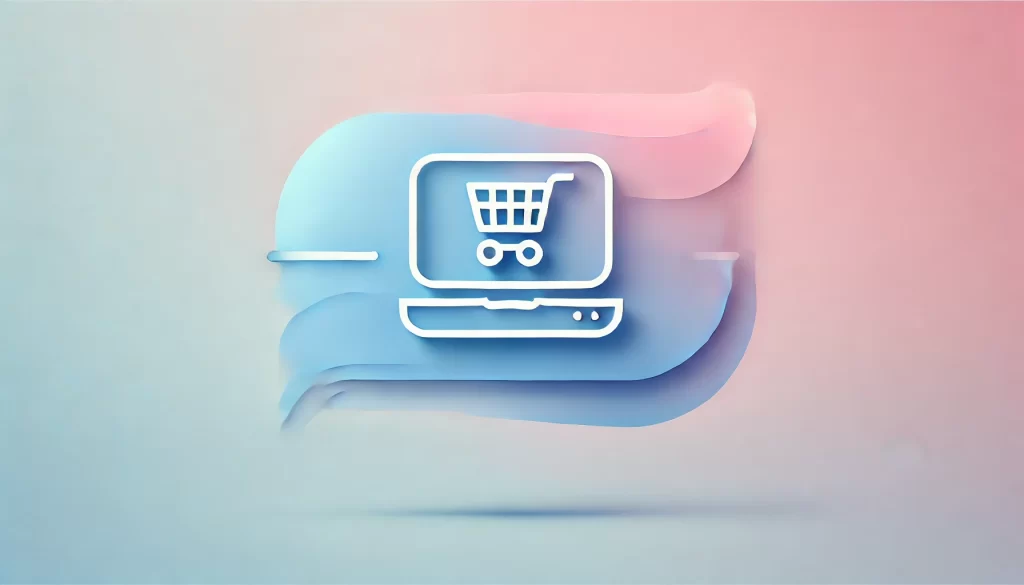The e-commerce landscape in Pakistan is rapidly evolving, presenting many opportunities for businesses and entrepreneurs. Understanding the latest trends in e-commerce in Pakistan is essential for anyone looking to capitalize on this growing market. If you want to learn how to start an e-commerce business in Pakistan, This guide will provide an in-depth analysis of the current trends and how they can influence your e-commerce strategy.
Contents
- 1 The Rise of Mobile Commerce
- 2 Growth of Online Payments
- 3 Expansion into Rural Markets
- 4 Personalization and Customer Experience
- 5 Social Media Integration
- 6 The Importance of Reviews and Ratings
- 7 Sustainable and Ethical Shopping
- 8 The Role of Artificial Intelligence
- 9 The Future of E-Commerce in Pakistan
- 10 Conclusion: Staying Ahead of E-Commerce Trends in Pakistan
The Rise of Mobile Commerce
One of the most significant trends in e-commerce is the rise of mobile commerce. With the increasing penetration of smartphones and affordable internet, more consumers are using their mobile devices to shop online.
Increasing Smartphone Usage
The widespread adoption of smartphones has transformed the way people shop. According to recent statistics, over 70% of online shoppers in Pakistan use their mobile phones to make purchases. This shift is driven by the convenience and accessibility that mobile shopping offers.
Mobile-Friendly Websites
To tap into this trend, having a mobile-friendly website is crucial. Ensure your e-commerce site is responsive, with a user-friendly interface that provides a seamless shopping experience on mobile devices. This enhances customer satisfaction and boosts your search engine rankings, as Google prioritizes mobile-friendly websites.
Growth of Online Payments
The growth of secure online payment methods has played a pivotal role in expanding e-commerce in Pakistan. As more consumers gain confidence in online transactions, the adoption of digital payments continues to rise.
Popular Payment Methods
Several payment methods are gaining popularity, including:
- Credit and Debit Cards: Major banks in Pakistan offer secure payment gateways for credit and debit card transactions.
- Mobile Wallets: Services like JazzCash and Easypaisa are becoming increasingly popular for their ease of use and widespread acceptance.
- Cash on Delivery (COD): While digital payments are rising, COD remains a preferred method for many consumers due to trust and security concerns.
Ensuring Payment Security
To build customer trust, ensure that your website uses secure payment gateways. Display security badges and provide clear information about your data protection policies. This will help alleviate any concerns customers may have about the safety of their transactions.
Expansion into Rural Markets
E-commerce is no longer limited to urban areas in Pakistan. A growing demand for online shopping in rural regions is driven by increasing internet accessibility and digital literacy.
Reaching Rural Customers
To effectively reach rural customers, consider the following strategies:
- Localized Marketing: Tailor your marketing campaigns to address rural consumers’ specific needs and preferences.
- Logistics and Delivery: Partner with reliable logistics providers to ensure timely and efficient delivery to remote areas.
- Customer Education: Educate rural customers about the benefits of online shopping and how to navigate your website.
For a deeper understanding, check out this detailed overview of Trends in E-Commerce in Pakistan.
Personalization and Customer Experience
Providing a personalized shopping experience is becoming increasingly important in e-commerce. Customers expect tailored recommendations and seamless interactions with online stores.
Personalized Recommendations
Use data analytics and machine learning to offer personalized product recommendations based on customers’ browsing and purchasing history. This will enhance the shopping experience and increase the likelihood of repeat purchases.
Enhancing Customer Experience
Focus on providing an exceptional customer experience through:
- User-Friendly Interface: Ensure your website is easy to navigate with intuitive design and clear categories.
- Customer Support: Offer multiple channels for customer support, including live chat, email, and phone support.
- Fast and Reliable Shipping: Partner with trusted courier services to provide quick and dependable delivery.
Social Media Integration
Social media platforms are increasingly important in e-commerce. They offer a powerful channel for marketing and driving sales.
Leveraging Social Media
Integrate social media into your e-commerce strategy by:
- Social Media Advertising: Use targeted ads on platforms like Facebook, Instagram, and TikTok to reach a broader audience.
- Influencer Marketing: Collaborate with influencers to promote your products and reach their followers.
- Social Commerce: Enable shopping directly through social media platforms by setting up shops on Facebook and Instagram.
The Importance of Reviews and Ratings
Customer reviews and ratings significantly impact purchasing decisions. Positive reviews can build trust and credibility, while negative reviews deter potential customers.
Encouraging Customer Reviews
Encourage customers to leave reviews by:
- Providing Incentives: Offer discounts or rewards for customers who leave reviews.
- Simplifying the Process: Make it easy for customers to leave reviews on your website or social media pages.
- Responding to Feedback: Actively respond to customer reviews, addressing concerns and thanking them for positive feedback.
Sustainable and Ethical Shopping
Consumers are becoming more conscious of their purchases’ environmental and ethical implications. There is a growing demand for sustainable and ethically sourced products.
Offering Sustainable Products
To cater to this trend, consider:
- Eco-Friendly Packaging: Use recyclable or biodegradable packaging materials.
- Ethical Sourcing: Ensure that your products are sourced from ethical suppliers.
- Transparency: Provide information about the sustainability and ethical sourcing of your products.
The Role of Artificial Intelligence
Artificial Intelligence (AI) is revolutionizing e-commerce by providing advanced tools for data analysis, customer service, and inventory management.
AI-Powered Tools
Some of the ways AI is being used in e-commerce include:
- Chatbots: Offer 24/7 customer support and assist with common queries.
- Inventory Management: Use AI to predict demand and manage stock levels efficiently.
- Personalization: Leverage AI to provide personalized recommendations and marketing campaigns.
The Future of E-Commerce in Pakistan
The future of e-commerce in Pakistan looks promising, with continued growth and innovation on the horizon. Businesses that stay ahead of the trends and adapt to changing consumer preferences will be well-positioned for success.
Emerging Technologies
Keep an eye on emerging technologies that can enhance your e-commerce operations, such as:
- Augmented Reality (AR): This allows customers to visualize products in their environment before purchasing.
- Voice Commerce: Enable voice-activated shopping through smart speakers and virtual assistants.
Adapting to Change
The e-commerce landscape is dynamic, and staying adaptable is key to long-term success. Regularly review and update your strategies to keep up with market trends and consumer behaviors.
Conclusion: Staying Ahead of E-Commerce Trends in Pakistan
Understanding and leveraging the latest trends in e-commerce in Pakistan is essential for building a successful online business. From mobile commerce and online payments to personalization and AI, these trends offer valuable insights into the future of e-commerce.
For more detailed information on each step, don’t forget to visit the related articles:
- Product Hunting in Pakistan
- Product Sourcing in Pakistan
- E-Commerce Platforms in Pakistan
- Launching Your Product Online
- Marketing Your Product Online
By following this guide and exploring the linked resources, you’ll be well-prepared to navigate the evolving e-commerce landscape and achieve success in Pakistan’s online market.







